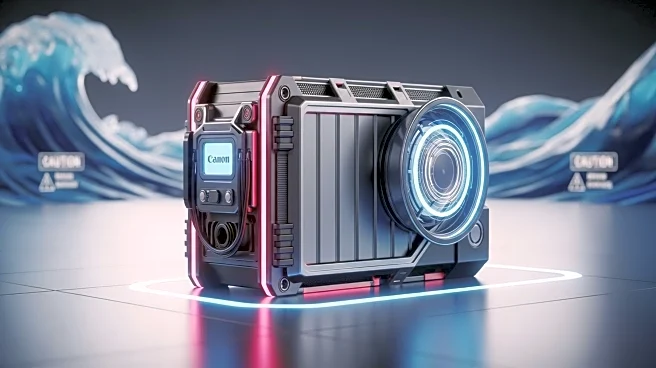What's Happening?
The American Bureau of Shipping (ABS) has released a report detailing the latest advancements in maritime battery technologies. The report, titled 'Emerging Battery Technologies in the Maritime Industry Volume II,' focuses on the potential of these technologies to support direct electrification and the integration of alternative fuels. It also addresses the inherent safety risks associated with emerging battery systems, such as thermal runaway and gas emissions. The report aims to provide actionable insights for operators looking to incorporate advanced battery technologies into their fleets, evaluating the maturity, benefits, and challenges of energy storage systems for marine and offshore applications.
Why It's Important?
The development and implementation of advanced battery technologies in the maritime industry are crucial for enhancing operational efficiency and reducing fuel costs. As the industry seeks to transition towards more sustainable practices, understanding the safety risks and benefits of these technologies is essential. The insights provided by the ABS report can guide operators in safely integrating these systems, potentially leading to significant reductions in emissions and improvements in energy efficiency. This shift could have broad implications for the maritime sector, influencing regulatory standards and encouraging further innovation in sustainable maritime operations.
What's Next?
Operators in the maritime industry are likely to explore the integration of these advanced battery technologies into their fleets, guided by the safety strategies outlined in the ABS report. As these technologies mature, there may be increased collaboration between maritime companies and technology developers to address the challenges identified in the report. Additionally, regulatory bodies may consider updating safety standards to accommodate the new technologies, ensuring that the transition to electrification and alternative fuels is both safe and efficient.
Beyond the Headlines
The adoption of advanced battery technologies in the maritime industry could lead to long-term shifts in how fleets are managed and operated. As these technologies become more prevalent, there may be a cultural shift towards prioritizing sustainability and safety in maritime operations. This could also influence the training and development of maritime professionals, as new skills and knowledge will be required to manage these advanced systems effectively.









